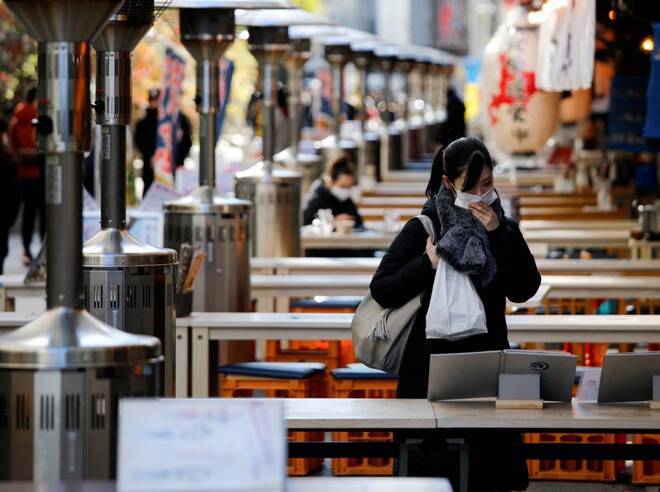Advertisement
Advertisement
Japan’s services sector nearly stagnates in July – PMI
By:
TOKYO (Reuters) - Japan's services sector activity almost completely stagnated in July as rising inflation and growing economic uncertainty weighed on sentiment, while firms also said a boost from the lifting of COVID-19 pandemic curbs had faded.
TOKYO (Reuters) – Japan’s services sector activity almost completely stagnated in July as rising inflation and growing economic uncertainty weighed on sentiment, while firms also said a boost from the lifting of COVID-19 pandemic curbs had faded.
The marked slowdown in activity in the sector offered an early warning sign that Japan’s economy may struggle to stage a convincing recovery, a worrying trend for a country greatly exposed to fluctuations in global growth.
The final au Jibun Bank Japan Services purchasing managers’ index (PMI) slumped to a seasonally adjusted 50.3, marking the lowest reading since March.
The figure showed activity came in slightly above the 50-mark that separates contraction from expansion.
It was below June’s final of 54.0, which was a more than eight-year high, and a 51.2 flash reading.
“The Japanese services economy signalled that demand conditions had broadly stagnated at the start of the second half of the year as the boost from the wider reopening of the economy waned,” said Usamah Bhatti, economist at S&P Global Market Intelligence, which compiles the survey.
“Panel members commented that weaker economic conditions, partly due to inflation and uncertainty, had weighed on the sector.”
Average cost burdens faced by services firms remained elevated, coming in at the second-highest rate in the survey’s history after June’s record.
The composite PMI, which is estimated by using both manufacturing and services, slipped to a five-month low of 50.2 from June’s 53.0 final.
“Overall, private sector activity broadly stagnated in July following June’s solid rise,” added Bhatti.
“A renewed fall in manufacturing output and stalling aggregate new orders contributed to the weaker reading.”
(Reporting by Daniel Leussink; Editing by Sam Holmes)
About the Author
Reuterscontributor
Reuters, the news and media division of Thomson Reuters, is the world’s largest international multimedia news provider reaching more than one billion people every day. Reuters provides trusted business, financial, national, and international news to professionals via Thomson Reuters desktops, the world's media organizations, and directly to consumers at Reuters.com and via Reuters TV. Learn more about Thomson Reuters products:
Did you find this article useful?
Latest news and analysis
Advertisement
